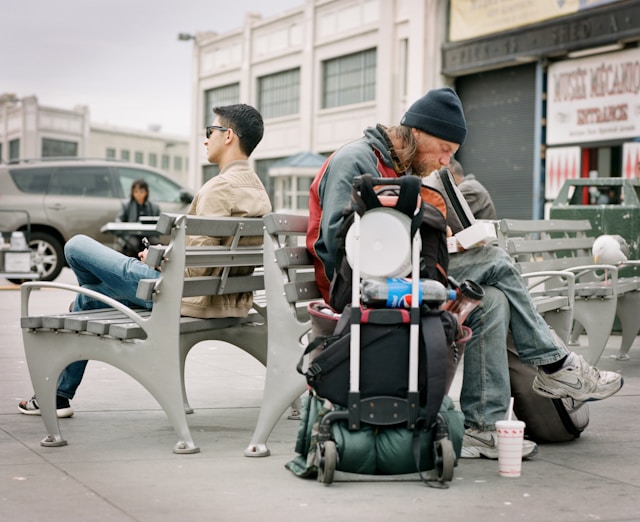
Promoting fairness and opportunity can boost overall societal contentment and navigate economic challenges more smoothly
From the Yellow Vests protests in France to the rise of populist leaders like Donald Trump and Viktor Orban, it is evident that increasing inequality is sparking dissatisfaction and unrest globally. These developments highlight how strongly people's views on economic inequality shape public sentiments and actions.
Our recent IZA Discussion Paper studies how people’s perceptions about the change in the economic gap between rich and poor impact their life satisfaction. We find that how people perceive economic inequality predicts life satisfaction, above and beyond the actual inequality numbers themselves.
Drawing on data from the 2015/16 Life in Transition Survey across 33 countries, which provides unique insights into inequality perceptions, life satisfaction, and other personal attributes, we discovered that the belief that inequality is rising correlates with an 8% drop in life satisfaction. This decline is twice as large as the satisfaction loss associated with unemployment, underscoring the critical role of economic perceptions in shaping people's overall well-being. Our findings support the emerging idea that many people are unaware of the full extent of inequality and other economic metrics, suggesting that perceptions are crucial in shaping how individuals evaluate economic performance.
Perceived inequality impacts subjective well-being in several ways. First, it can lead to psychological distress by creating feelings of unfairness and helplessness, which directly decrease life satisfaction. Second, social comparisons matter: when individuals believe others are progressing economically at an unjust pace, they may feel resentment and dissatisfaction. Additionally, some believe that inequality leads to adverse social outcomes like political instability, mistrust, and violence, which indirectly diminish life satisfaction. Finally, pessimism about future opportunities reduces overall well-being when people think rising inequality will limit their economic progress.
We also study how beliefs about social mobility—the ability to climb the economic ladder—and the perceived fairness of the system modify the relationship between perceived inequality and well-being. We find that individuals who are optimistic about their economic potential feel fewer negative effects from perceived inequality. This suggests that a positive outlook on personal progress can partly buffer, but not fully offset, the adverse influence of economic disparities on subjective well-being.
Similarly, faith in an economic system that fairly rewards hard work can lessen the negative life satisfaction impact of perceived inequality. This sense of justice, where the economic "game" is seen as fair, plays a crucial role in maintaining satisfaction and social cohesion.
Our findings underscore the link between economic perceptions and well-being. They stress that policymakers should not only address inequality but also manage public perception. By prioritizing policies that promote fairness and opportunity, they can boost overall societal contentment and navigate economic challenges more smoothly. In an era where misinformation can easily skew public views, understanding the origins and consequences of these beliefs is as vital as tackling the inequalities themselves.
© Daniele Marchesi, Milena Nikolova, and Viola Angelini
Daniele Marchesi is PhD student at University of Groningen
Milena Nikolova is an Aletta Jacobs Professor at University of Groningen and IZA Research Fellow
Viola Angelini is Full Professor and Aletta Jacobs Chair at University of Groningen and IZA Research Fellow
Please note:
We recognize that IZA World of Labor articles may prompt discussion and possibly controversy. Opinion pieces, such as the one above, capture ideas and debates concisely, and anchor them with real-world examples. Opinions stated here do not necessarily reflect those of the IZA.
Related IZA World of Labor content:
Relative deprivation in the labor market by Paolo Verme
Relative deprivation and individual well-being by Xi Chen
Relative pay, effort, and labor supply by Anat Bracha
The happiness gap between transition and non-transition countries by Ekaterina Skoglund
Photo by Benjamin Disinger on Unsplash